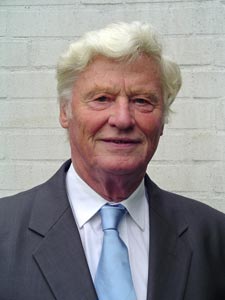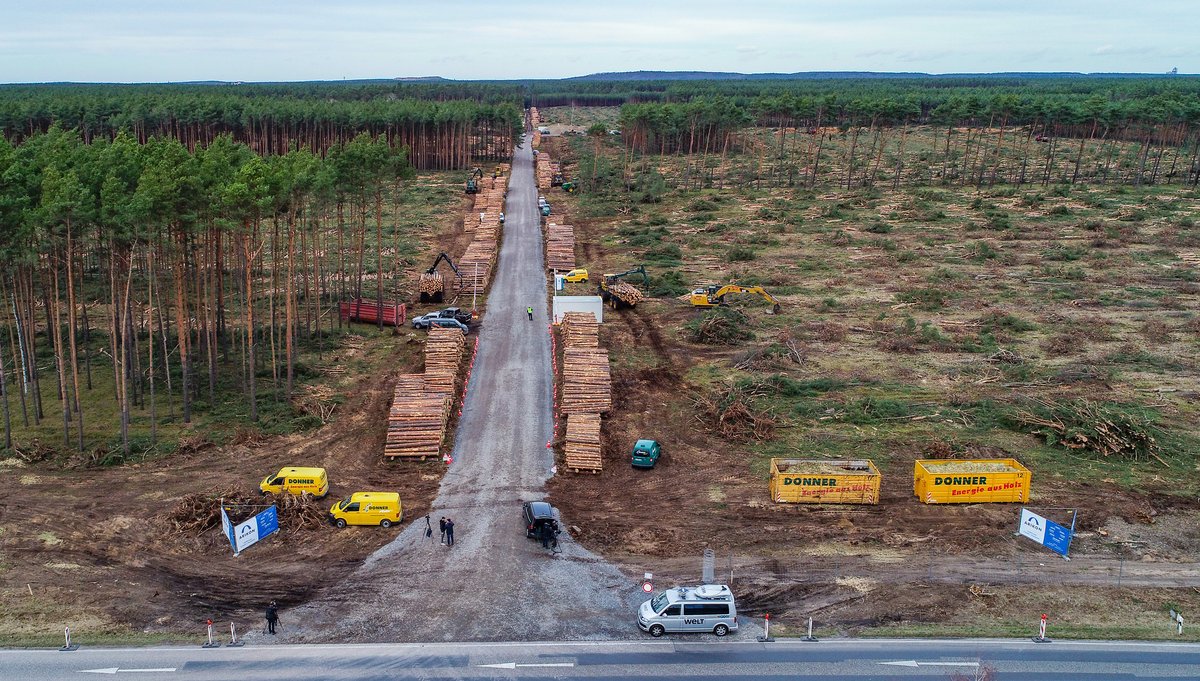Everything is wrong with Grünheide
For whom is a Tesla car plant to be built in Brandenburg?
by Professor Dr Eberhard Hamer, “Mittelstandsinstitut Niedersachsen e.V.” (SME Institute Lower Saxony)
Brandenburg’s Minister of Economy is no more an economist than the Federal Minister of Economy or any other member of the government. Therefore they are allowed to conduct economic policy without applying the principles a prudent businessman would use. Instead, in Germany, economic policy means obeying the orders of international corporations and pursuing their welfare at the expense of our German taxpayers. This policy is also behind the establishment in Grünheide of an automobile plant owned by the US-American Tesla Group.
An economist would have expressed many reservations:
- Tesla is a financial bubble in the automobile industry. To date, its products have always been poor; the shop has not earned a single cent in recent years, but has always only been raising additional capital. No ordinary businessman would conclude contracts with such a flibbertigibbet.
- Neither does the Tesla plant in Grünheide make any economic sense. We have the world’s leading automobile companies, to whom we also owe a large part of our export surpluses. It makes no economic sense to cause damage to them with another competitor.

(picture zvg)
In the case of the fines imposed by the American automobile industry on German competitors (VW 30 billion dollars, Daimler-Benz 10 billion dollars), the Federal Government has failed to act as a protective power, it has favoured foreign capital over German companies. With Tesla, this approach is now entering into its second round.
- All the electrification of the automobile industry could be an air bubble, because
every car has to carry a battery mine for it,
the performance limits of the battery also represent driving limits for the car,
more powerful batteries are not yet on the market,
and anyway there is not enough battery production for a major electrification, and there would also be no charging stations for this battery production. So it is questionable whether this technological adventure will work at all.
- The compulsive electromobility policy is sold through environmental considerations. If one compares and evaluates the environmental impact of the more harmful production costs of the necessary batteries, the lack of charging stations and the insufficiently available electricity with the ever decreasing fuel costs for combustion engines, this environmental comparison is likely to be negative for electromobility. Behind this whole wave there is more ideology than technology or environmental economics.
- Anyone who wants to cut down a tree privately or has to cut down several trees is opposed by all the bureaucratic power of the eco-functionaries. Tesla, however, is allowed to hotfoot the clearing of 90 hectares of forest with millions of trees in Brandenburg, and the area designed for this environmental destruction is paid with public funding, without the professional environmentalists coming forward. There are again double standards for the capital.
- With regard to the subsidies, the Brandenburg amateur minister of economics points out the employment effect of the Tesla plant. This is dubious: The Tesla plant was intentionally built at the distance of half an hour’s drive (60 km) from Poland, and according to its own statements, it will employ predominantly Polish workers. It advertises in Polish and refuses to allow German trade unions to work at the plant. This subsidization of such unfair competition against our German producers should basically be forbidden for reasons of labour market policy.
- Should Tesla ever produce in Grünheide, the German state will not even receive one euro in profit tax from this tax haven company. Instead, the economics ministers are outbidding each other by offering subsidies in the billions to Tesla. The members of the German Mittelstand, which has to earn these subsidies, are rubbing their eyes in disbelief seeing this new preference for international capital.
- As far as can be seen to date, the Tesla plant in Grünheide has been financed exclusively with state investments and loans. Not only is the investor a flibertigibbet, but the investment could become an air bubble itself. This would leave 90 hectares of unused halls in Grünheide and the new subsidy task for economic policy to find new users for these. So one mistake leads to another. There is a piece of speculation in every major investment. But in contrast to the solid German automobile factories, Tesla has so far pursued more speculation than investment. Tesla has only remained a success system in the collection of capital; it is a flop in production and profitability.
Considering in addition that there are neither technologically reliable batteries, nor battery production, nor charging stations for large-scale electric mobility, and that Merkel’s energy revolution has given Germany the most expensive electricity in the world, any public investment in this speculation should have been prohibited at once. But politicians are immune, cannot be attacked personally for their mistakes, and can therefore buy the gratitude and support of international capital at the expense of Mittelstand taxpayers. •
(Translation Current Concerns)
